Events
Future leaders in focus: highlights from the CRUK City of London Centre Symposium 2024
Cancer researchers from across London gathered for the 2024 CRUK City of London Centre Symposium, which took place at the Francis Crick Institute on 29th and 30th January. This flagship event showcased and celebrated the talented scientists within the centre, providing an opportunity to network, debate and collaborate.
The CRUK City of London Centre is a world-leading centre of excellence in cancer biotherapeutics, bringing together researchers from Queen Mary University of London (including the Barts Cancer Institute and Wolfson Institute of Population Health), University College London, King's College London and The Francis Crick Institute.
The centre’s 2024 symposium focused on the theme of Future Leaders, recognising the hundreds of early-career researchers across the network who are working to drive progress and build their careers. For this event, PhD students, postdoctoral researchers and junior group leaders were encouraged to take a prominent role and were invited to present, chair sessions, and actively drive discussions.
Professor Erik Sahai, City of London Centre Events Lead and Group Leader at the Crick, commented at the symposium: “The function of the City of London Centre is to provide infrastructure and fertile ground for cancer research. Central to that aim is training up the next generation of leaders. And as I look across this auditorium, I’m sure I’m looking at some of those leaders now.”
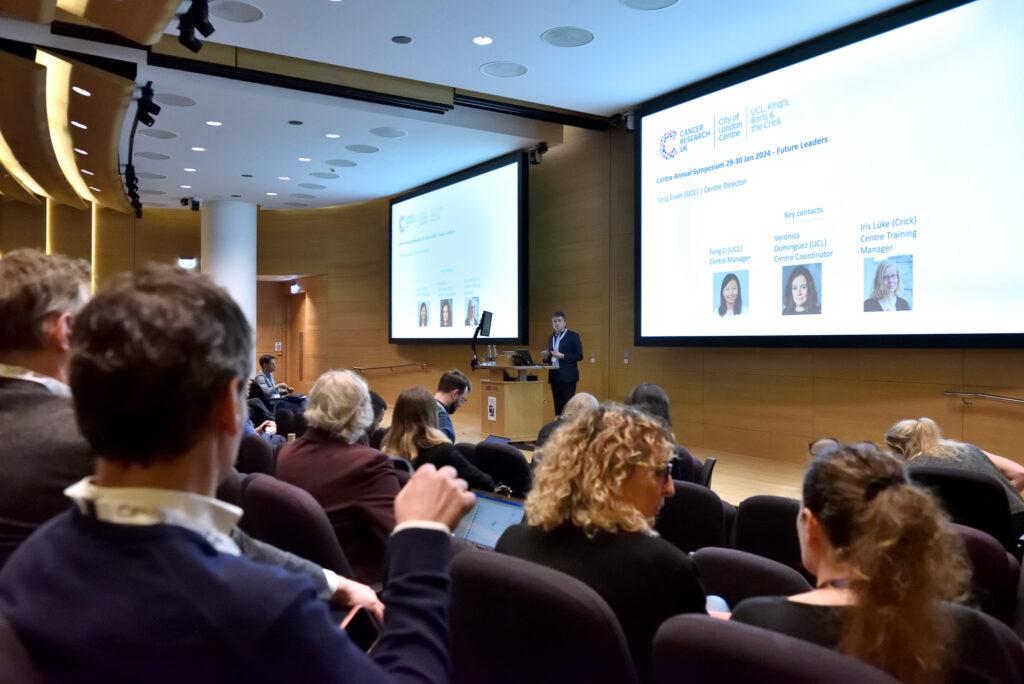
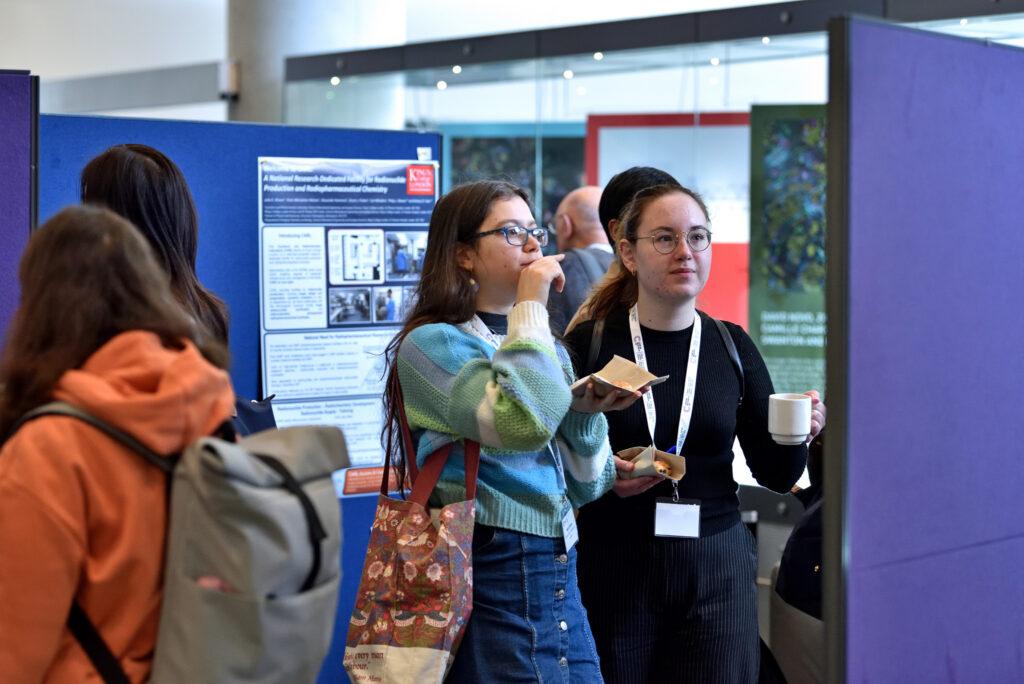
In this article, we look back at highlights from the event and meet two early-career researchers who participated in the symposium.
Day one: setting the stage and looking to the future
The symposium opened with welcoming remarks by Professor Tariq Enver, City of London Centre Lead and Director of the UCL Cancer Institute, who encouraged early-career researchers to step forward, engage and make the most of the symposium.
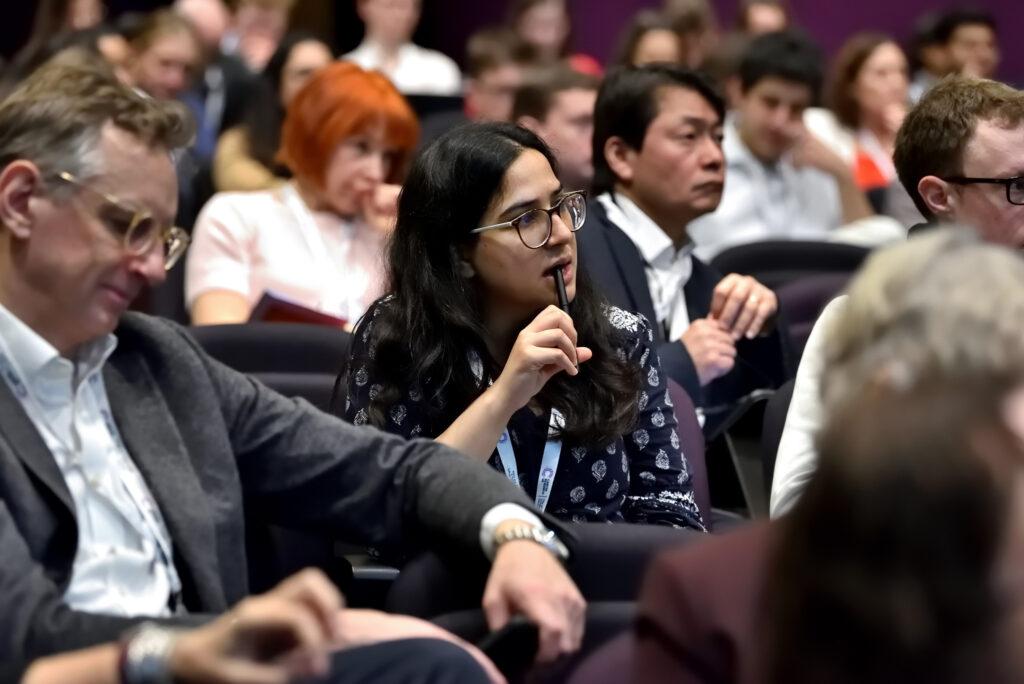
Scientific talks began with a Keynote by Professor Valerie Weaver from the UCSF Helen Diller Family Comprehensive Cancer Center, who presented on fibrosis in tumours and how tissue tension affects cell behaviour and immunity. Before beginning she commented: “I just wanted to say to all you trainees – there’s no difference between you and me. We all talk about future leaders, but don’t wait for the future.”
Sessions throughout the first day had a strong therapeutic focus, covering novel biological therapies, effective combinations and integrated multidisciplinary approaches. A session dedicated to RadNet City of London – the centre’s hub for radiation research excellence – focused on new insights into the interplay between the microbiota and radiotherapy. See the symposium programme for a full listing of sessions and talks.
The future of cancer research
Day one concluded with a panel session on the future of cancer research, which reflected on the most significant progress over the past several hundred years and anticipated the themes that may shape our next major advances. Professor Erik Sahai chaired the panel, which featured Professor Charlie Swanton, Professor Chris Tape, Professor Karen Vousden and Professor Valerie Weaver. Questions from the audience, often posed by early-career researchers, sparked a lively discussion.
The researchers highlighted the likely importance of technological innovation in driving our next major advances – mirroring the progress we have seen in the advent of genome sequencing and monoclonal antibodies. They reflected on the importance of cross-disciplinary collaboration, and how computational biologists, mathematicians, chemists, wet-lab experimentalists and clinicians can all work together and learn to speak the same languages. The panel also discussed the promise of personalised medicine and how we can translate more of the extraordinary improvements in our understanding of the disease into tangible benefits for patients.
When the panel was asked what they would bet their careers on being the biggest advancement of the next 30 years, Professor Swanton commented: “Prevention, prevention, prevention.” The panellists agreed that improved prevention and public health holds the potential to save hundreds of thousands of lives. The session ended with a discussion of how research is structured and funded, questioning how we can recruit, retain and fairly pay excellent early career researchers in academia, some of whom can struggle to make ends meet in pursuit of their passion for research.
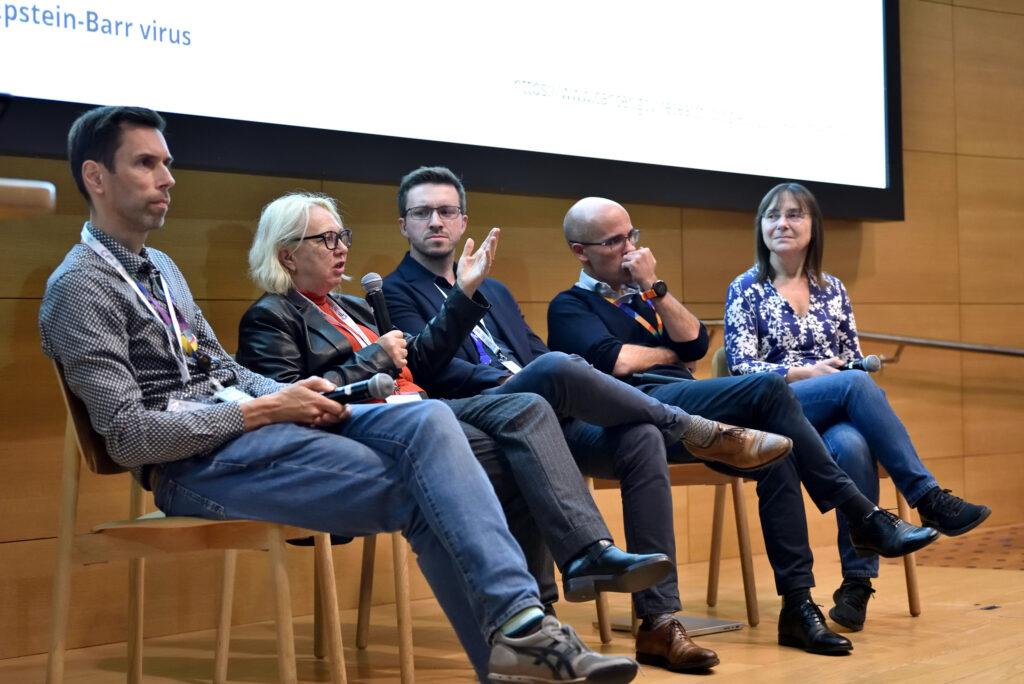
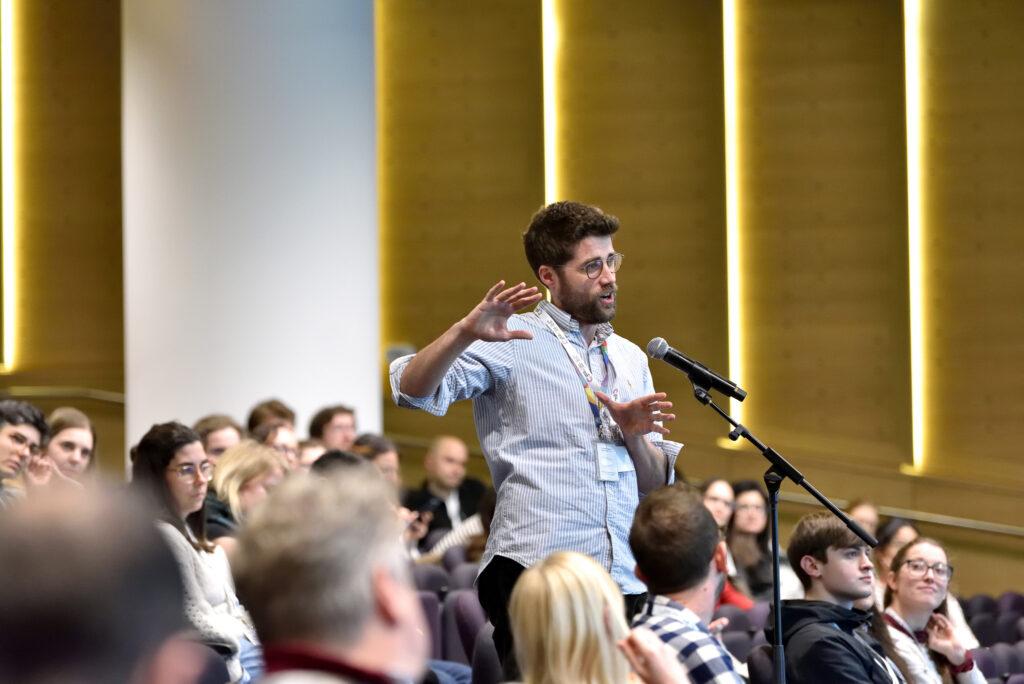
Day two: discovery, innovation and patient involvement
Day two of the symposium featured further oral sessions on cancer evolution, paediatrics, early detection and prevention and biological therapies and combinations. See the symposium programme for a full listing of sessions and talks.
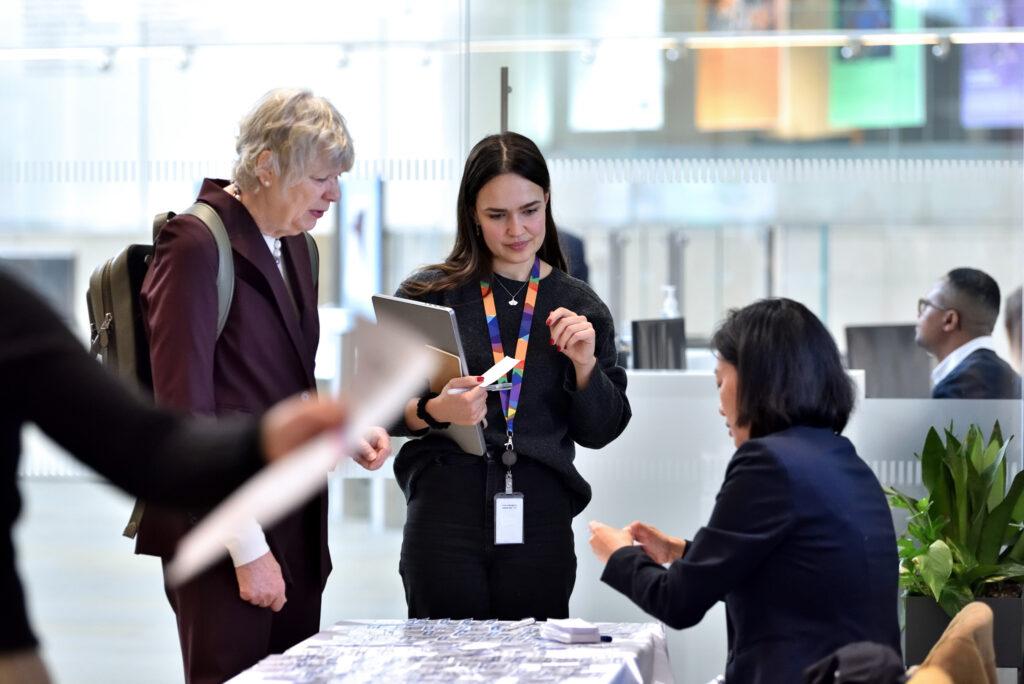
Find out more about the CRUK City of London Centre:
One highlight of the day was a session on patient and public involvement and engagement (PPIE), which discussed the importance of involving people with lived experience of cancer in medical research to improve research quality and relevance to patient needs. Professor Fran Balkwill, Group Leader at Barts Cancer Institute and Chair of the City of London Centre PPIE committee, introduced some current activities at the centre, such as the BCI’s VOICE patient advocate education programme and STARS schools engagement programme. She also announced new initiatives from the centre – a new funding call to support PPIE activities around the centre and an image competition to showcase research across the centre to scientific and lay audiences.
Patient representative David Chuter also shared his personal experience with cancer and emphasized the need for patients to have a voice in research and to be kept engaged with the progress underway. Professor Jessica Okosun spoke about her work with patient and public involvement group at Barts Cancer Institute, and highlighted how we can create a dialogue with patients throughout the entire research cycle – not only with clinical work involving human participants, but also with fundamental lab research.
A later session covered the latest research being funded by the City of London Centre’s development fund. This scheme offers up to £25,000 grants for innovative ideas, enabling researchers to try something new, develop new technologies or generate new pilot data to leverage further funding. The session included a series of two-minute elevator pitches, giving a rapid overview of new awardees’ projects.
Feng Li, CRUK City of London Centre Senior Project Manager said: “This is my first annual symposium as the centre manager and I am very impressed with the quality of research, presentations and chairing from our early career researchers across the partners. We are proud to support them to become future leaders through our PhD programme, facilities, development fund scheme, events as well as EDI and patient public engagement initiatives. Our events are always free and held in London to facilitate early career researchers joining. We will lobby for fair post-doctoral researcher pay as we did for our PhD students who saw their stipend increase to help ease the pressure of the cost of living increase”.
Meet our future leaders
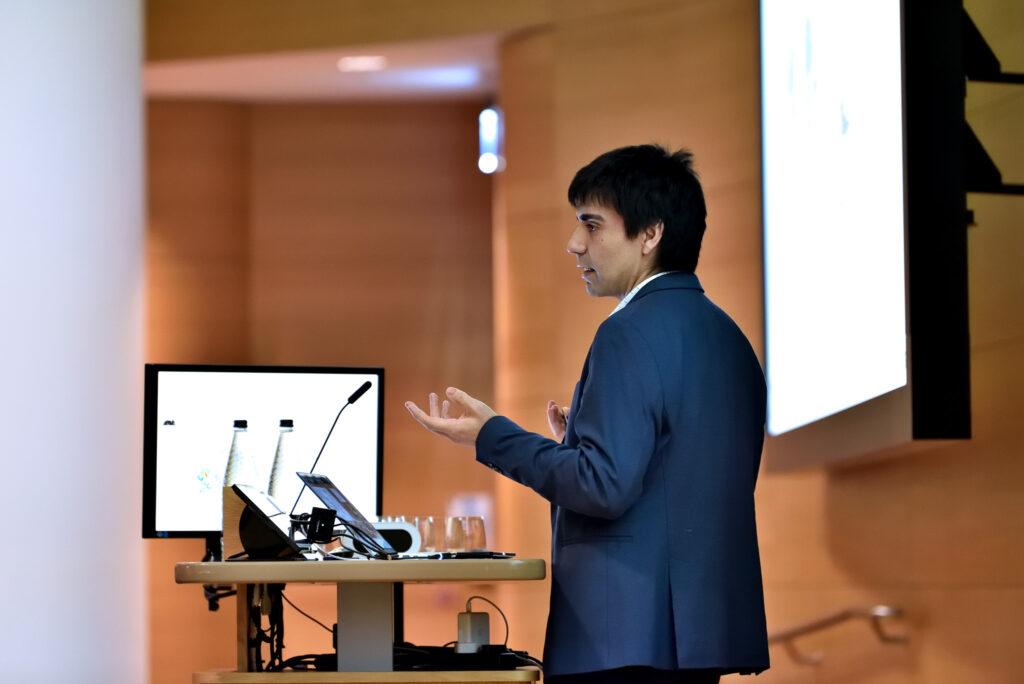
Felipe Galvez-Cancino
Dr Felipe Galvez-Cancino is a postdoctoral researcher working in Professor Sergio Quezada’s lab at UCL. He is also a member of the NexTGen Cancer Grand Challenges team – a worldwide collaboration seeking to develop novel therapies to target unique features in solid tumours in children.
Felipe’s research focuses on the interactions between immune cells in glioblastoma. At the symposium, he was invited to present on his work examining the use of antibodies to deplete Treg cells, an immune cell associated with poor survival of people with glioblastoma. Felipe is currently preparing to make the leap to start his first independent lab at the University of Oxford Centre for Immuno-oncology.
Felipe comments:
“I think the symposium’s focus on early career researchers has been important. This career stage can come with unique challenges and can be isolating, so it’s great to hear from and network with other people at the same stage. It’s always great to meet people at other institutions at events like this – it provides lots of new ideas and potential collaborators to approach.
The City of London Centre has supported my research in multiple ways. The core facilities have been invaluable to my work – particularly the Single-Cell Genomics Facility, who have been extremely supportive. I work a lot with bioinformatics, so having expert support with data analysis has been super important.
While I’m moving out of the centre to start my new group in Oxford, I think it will be important to maintain the connections I have built here. Both CRUK and the City of London Centre have been very supportive, helping me to reach this next phase in my career, and I’ve been proud to be a part of this community.”
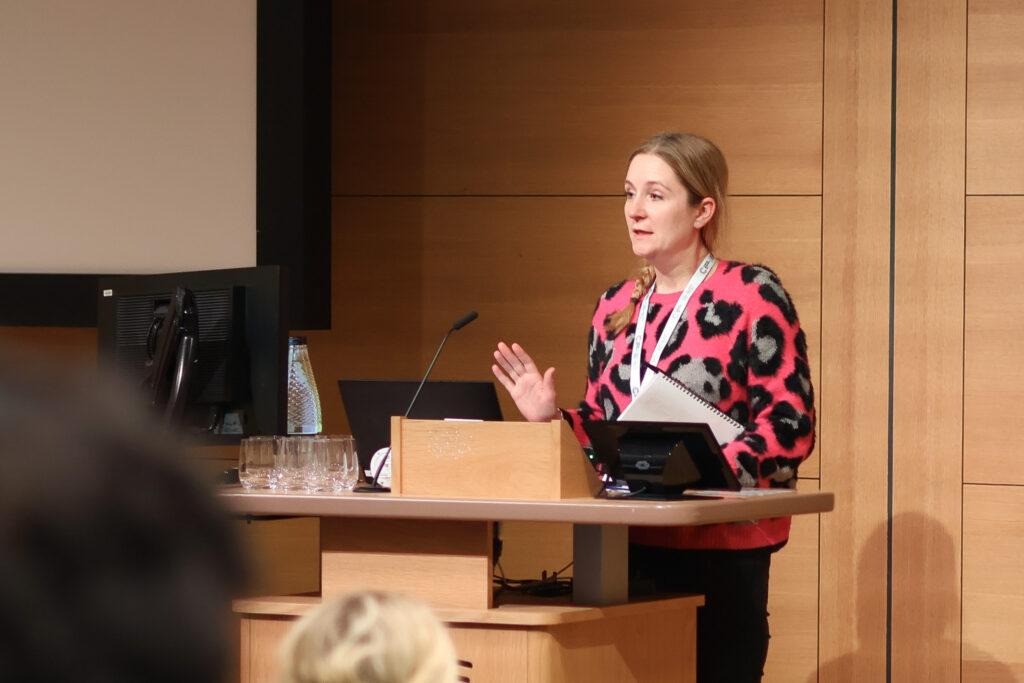
Sarah Duncan
Sarah Duncan is a Clinical PhD fellow, funded by the City of London Centre, working in Professor Susana Godinho’s team at Barts Cancer Institute, Queen Mary University of London. She researches pancreatic cancer and is investigating how cancer cells with abnormally high numbers of centrosomes release vesicles that activate neighbouring pancreatic stellate cells. These activated stellate cells build a dense barrier of extracellular matrix around the cancer, protecting the cancer from the immune system and therapies and leading to poor outcomes in patients. She has discovered several proteins that seem to be key to this activation, opening new possibilities for treatments that reduce stellate cells’ activity in the disease.
Sarah was invited to chair a session at the symposium. She comments:
“I’ve never had the opportunity to chair a session before. It was a great – if somewhat scary – experience! As chair, one of your main tasks is to have a question ready for the speaker in case no one else has one. I found that this made me engage with the talks in a different, more active way, and I think it will change how I engage with talks in the future. Having chaired a session once, I would definitely be willing to do it again – it isn’t something you usually get to practice as a PhD student.
I find the City of London Centre’s seminars and workshops really valuable. It’s helpful to have regular events where you can talk to people doing similar things to you, compare notes and troubleshoot challenges. I also find it helpful to know that I’m part of a wider network with lots of people I can reach out to for advice and collaboration. And because we’re all based in London, it’s easy to hop on the tube to meet someone or use a piece of equipment at another institute.
I’m now in the process of finishing my final experiments and will soon be writing up my thesis, after which I will be back in the clinic to complete my training. I was one of the City of London Centre’s first PhD students, but I took a few breaks to go back into the clinic during the pandemic and to take maternity leave. The centre has been extremely supportive and has had no problem in giving me the extra time I needed to complete my project.”
Category: Conferences, Events, General News

No comments yet